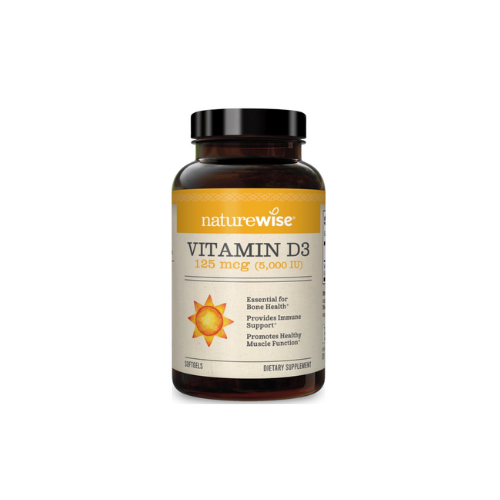Carnivore Diet and Skin Disorders
Exploring Potential Dermatological Benefits
The Carnivore Diet, an eating regimen that is heavy on animal products and excludes plant-based foods, has been subject to various scientific discussions concerning its impact on human health. It primarily consists of meats, fish, and other animal products, providing a rich source of protein, fats, omega-3 fatty acids, and fat-soluble vitamins like A, D, and E. These nutrients play an essential role in maintaining and promoting skin health. Proteins, for instance, are essential for the repair and regeneration of skin tissues, while fats contribute to a healthy skin barrier. The diet's emphasis on animal products means omitting potential allergens or irritants commonly found in plant-based foods, which makes it a form of an elimination diet.
For individuals with various skin disorders, dietary interventions can be a crucial part of managing their conditions. Skin conditions like psoriasis and eczema involve inflammation and compromised skin barriers. The Carnivore Diet has gained attention in some circles for potentially reducing inflammation and providing nutrients that support skin health. Proponents of the diet argue that the high intake of essential nutrients can aid in the repair of skin tissue and contribute to a stronger skin defense mechanism against environmental insults.
Although the consumption of animal products could provide these valuable nutrients for skin health, there is a need for careful consideration of the potential risks and benefits of adopting such a restrictive diet. Despite anecdotal evidence and preliminary research hinting at possible improvements in skin conditions, individuals considering the Carnivore Diet must weigh these findings against the broader scientific understanding of nutrition and health. It is essential that they consult with healthcare providers to navigate the best dietary approach for their unique needs, especially when dealing with skin disorders.
Exploring the Carnivore Diet
The carnivore diet is a high-protein, low-carbohydrate diet that emphasizes the consumption of animal products and excludes plant-based foods. This section will describe the core aspects of the carnivore diet and how it contrasts with other dietary patterns.
Definition and Principles
The carnivore diet is a dietary regimen that involves exclusively eating animal-derived products. The primary focus is on meat, including beef, pork, chicken, and lamb, as well as fish, eggs, and dairy products that are low in lactose. Proponents suggest that this diet provides all the essential nutrients needed for human health, mainly through the consumption of organ meats that are nutrient-dense. The diet eliminates all carbohydrates, including grains, fruits, vegetables, legumes, nuts, and seeds, positing that fat and protein can sufficiently sustain energy levels and body functions.
The basic principles include:
A focus on high intakes of protein and fat from animal sources.
Elimination of carbohydrates, with an emphasis on avoiding all plant-based foods.
Aiming for zero or minimal consumption of fiber as it is primarily derived from plants.
Comparison With Other Diets
Carnivore Diet vs. Ketogenic Diet:
Both diets are low in carbohydrates, but the ketogenic diet allows for a moderate intake of specific plant-based foods to achieve a state of ketosis, where the body burns fat as its primary fuel source. The keto diet includes a greater variety of food such as low-carb vegetables and sometimes nuts and seeds, whereas the carnivore diet strictly excludes these.
Dietary Aspect Comparison: Carnivore vs. Ketogenic
Primary Nutritional Focus
Carnivore Diet: Protein, Animal Fat
Ketogenic Diet: Fat, Moderate Protein
Carbohydrates
Carnivore Diet: None to minimal
Ketogenic Diet: Limited (20-50 grams/day)
Fiber
Carnivore Diet: None
Ketogenic Diet: Low to moderate (from allowed vegetables)
Plant-Based Foods
Carnivore Diet: Excluded
Ketogenic Diet: Allowed in moderation
Carnivore Diet vs. Standard Diets:
Typical standard diets recommended by nutritionists include a balance of macronutrients — carbohydrates, proteins, and fats — and a diverse range of foods from all food groups, including copious amounts of fruits and vegetables. The standard dietary guidelines often emphasize the importance of fiber for digestive health and the benefits of plant-based foods, such as legumes and grains, in providing vitamins, minerals, and phytonutrients. In sharp contrast, the carnivore diet challenges these beliefs by proposing an all-animal product diet devoid of fibers and plant-derived nutrients. Critics point out the potential risks associated with the high intake of saturated fat and the absence of health-promoting compounds found in plants.
Skin Disorders and Dietary Impacts
The food we consume plays a significant role in the condition of our skin. Specific diets can either alleviate or exacerbate various skin disorders.
Role of Diet in Skin Health
Diet fundamentally affects skin health by influencing inflammation, hormonal balance, and the integrity of the skin barrier. Nutrients such as vitamins A, D, and E, omega-3 fatty acids, and high-quality protein are essential for skin repair and preventing inflammation, which is a core factor in conditions like acne, psoriasis, and eczema. A lack of these nutrients can compromise the skin barrier, making it more susceptible to irritants and allergens, and can disrupt the skin's microbiome, leading to further skin issues.
Connection Between Carnivore Diet and Skin Disorders
The carnivore diet, which is high in animal products, has been associated with a reduction in skin disorders for some individuals. This diet may benefit those with skin conditions because it:
Eliminates potential inflammatory triggers from plant-based foods, such as gluten and certain lectins.
Supplies large quantities of skin-supportive nutrients from animal sources, which may be more bioavailable than plant-derived counterparts.
Avoids foods high in refined sugars and carbohydrates that can worsen inflammation and acne.
The exclusion of plant-based allergens and irritants may benefit those with autoimmune skin conditions, as the immune system can sometimes react to these compounds, leading to increased inflammation and symptom severity. However, it is essential to recognize that scientific research on the carnivore diet's impact on skin health is limited, and these outcomes can vary greatly from person to person.
Nutritional Benefits of the Carnivore Diet
The carnivore diet offers a unique set of nutritional benefits derived from its high intake of animal-based foods, particularly in the forms of protein and fat, that may be relevant to managing skin disorders.
Macronutrient Focus
Protein: It is the cornerstone of the carnivore diet. The diet provides protein in abundance, which is vital for the repair and regeneration of tissues, including the skin. Animal-based foods such as ribeye steaks (What wine goes well with ribeye steak?), organ meats, and chicken breasts are rich in protein, ensuring ample supplies for bodily functions.
Organ meats: particularly liver, are protein-rich and provide a spectrum of vitamins and minerals.
Fat: Essential for maintaining healthy skin, the consumption of fat on the carnivore diet typically comes from animal sources. This includes both saturated fats and omega-3 fatty acids, which are found in fish, eggs, and fatty cuts of meat. Accurate balance between omega-3 and omega-6 fatty acids is crucial, with the former being anti-inflammatory and beneficial to skin health.
Essential Nutrients and Their Sources
The carnivore diet, through its exclusive focus on animal products, inherently offers a range of essential nutrients that support overall health, including skin integrity.
Vitamins: Certain essential vitamins like A, D, E, and K2, often found in high quantities in animal-based foods, particularly organ meats like liver, are known for their skin health benefits.
Minerals: Selenium and zinc, crucial for skin health, are abundant in meats such as poultry, beef, and seafood like oysters.
Bone broth, a staple in the carnivore diet, is full of collagen and minerals which can directly benefit the health of the skin. Cholesterol, often misunderstood, is also essential for the production of steroid hormones and takes part in skin structure and function.
Vitamin and Mineral Sources:
Vitamin A: liver, fish, eggs
Vitamin D: fatty fish like salmon
Vitamin E: organ meats
Vitamin K2: high-fat dairy products
Selenium: seafood, pork
Zinc: beef, lamb, pumpkin seeds
Incorporating a variety of these animal-based foods can ensure a diet rich in essential nutrients needed for potentially alleviating some skin disorders.
Potential Risks and Considerations
While the carnivore diet may provide benefits for skin health, it also carries certain risks and considerations that individuals should be aware of.
Nutritional Deficiencies
The carnivore diet, by its nature of excluding plant-based foods, can lead to nutritional deficiencies. Essential nutrients typically derived from plant sources, such as dietary fiber, certain vitamins like Vitamin C and E, and antioxidants, are absent in a carnivore diet. It is also low in phytonutrients, which are important for reducing inflammation and combating oxidative stress. For skin health, these deficiencies could potentially exacerbate conditions such as eczema or psoriasis over time.
Dietary Fiber: Commonly absent in animal products, leading to potential digestive issues.
Vitamin C and E: Essential for skin health and immune function; must be supplemented or obtained through organ meats.
Individuals considering the diet may need to consult with healthcare professionals to prevent these deficiencies.
Trust me, the easiest way to buy fiber supplement, vitamin C, and vitamin E is through online retailers!
Long-term Health Impacts
Consuming a high amount of saturated fat and cholesterol, which is characteristic of the carnivore diet, has been associated with an increased risk of heart disease and certain kinds of cancer. The long-term impacts of a diet high in these nutrients are a cause for concern. The risk of heart disease may rise due to increased levels of LDL cholesterol ("bad" cholesterol) from a high intake of red and processed meats.
Saturated Fat and Cholesterol: Elevated intake could increase LDL cholesterol levels.
Cancer Risk: Some studies suggest a link between high meat consumption and certain cancers.
Medical supervision is advised when considering this dietary pattern, especially for those with pre-existing health conditions or those with a family history of heart disease or cancer.
Carnivore Diet and Inflammation
The Carnivore Diet, comprised almost exclusively of animal products, has been associated with anti-inflammatory effects. Proponents suggest that by eliminating plant-based foods—common sources of dietary carbohydrates—the diet may mitigate blood sugar spikes and subsequent inflammatory responses. This regulation is central to the diet’s purported benefits.
Key components of the diet that may influence inflammation:
High in Omega-3 Fatty Acids: Foods like fish, which are central to the carnivore diet, are abundant in omega-3 fats. These fats are recognized for their anti-inflammatory properties.
Rich in Animal-Based Proteins and Fats: The emphasis on high-fat, high-protein foods may help in managing inflammation by stabilizing blood sugar levels.
Antioxidants and Polyphenols: Although the diet lacks in the variety of antioxidants and polyphenols found in plant-based foods, it does include some sources such as those in certain types of fish and organ meats.
Impact of Nutrients on Inflammation:
Omega-3 Fatty Acids: May reduce inflammatory markers.
Protein & Fat from Meat: May stabilize blood sugar levels, affecting inflammation.It is worth considering the potential risks of an all-meat diet: high intake of saturated fat and the absence of fiber and certain micronutrients. A variety of omega-3 and saturated fat consumption is important. The diet's lack of plant-based nutrients like fiber and certain antioxidants that also play a role in reducing inflammation could be a limitation.
One should approach the carnivore diet with caution, fully evaluating its potential benefits against the risks, particularly considering the long-term impact on health.
Weight Management and Metabolic Health
The Carnivore Diet has implications for weight management and metabolic health, specifically in the contexts of weight loss potential and its effects on blood sugar and diabetes.
Weight Loss Potential
Individuals on the Carnivore Diet may experience weight loss due to high satiety from proteins and fats, as well as a reduction in carbohydrate intake, leading to a state of ketosis. Ketosis is a metabolic state where the body uses fat as the primary energy source, potentially enhancing fat loss.
Satiety: Protein-rich diets typically increase feelings of fullness.
Carbohydrates: Minimal to no carb intake may prevent insulin spikes.
Fat Utilization: Enhanced fat burning due to ketosis.
Effects on Blood Sugar and Diabetes
The Carnivore Diet's restriction of carbohydrates could lead to stabilized blood sugar levels, which is a significant factor for individuals managing diabetes. Consistent protein and fat intake might help maintain energy levels without the blood sugar spikes associated with carbohydrate consumption.
Blood Sugar Control: Low carbohydrate intake may reduce blood sugar variability.
Diabetes Management: Potential for improved glycemic control in individuals with diabetes.
Metabolism Regulation: The diet may influence insulin sensitivity and thus metabolic health.
Implementing the Carnivore Diet
Embracing the carnivore diet requires an understanding that the plan revolves around animal products while excluding other food groups. This section will guide readers through formulating a meal plan and discuss strategies for transitioning to and adapting the carnivore diet.
Creating a Meal Plan
A meal plan on the carnivore diet is simple in concept, as it includes primarily meat, fish, eggs, and certain dairy products. Below is a sample 3-day meal plan utilizing animal products and ensuring adequate fat intake, critical for sustained energy.
Day 1:
Breakfast: Scrambled eggs cooked in butter.
Lunch: Grilled ribeye steak.
Dinner: Baked salmon with a side of bone broth.
Day 2:
Breakfast: Bacon and eggs.
Lunch: Beef liver sautéed with onions in lard.
Dinner: Pork chops with a knob of butter.
Day 3:
Breakfast: Omelet with cheese.
Lunch: Canned tuna mixed with mayonnaise.
Dinner: Chicken thighs (What wine goes well with chicken thighs?) cooked in coconut oil.
Snacks are not a principal part of the carnivore diet, but if needed, one could opt for more filling cuts of meat or hard cheeses. Drinking ample water is encouraged to support digestion and overall health.
Transition and Adaptation Strategies
Transitioning to the carnivore diet can be a significant change for many. Individuals should start by gradually increasing their intake of animal products while reducing non-animal foods. Here are some strategic points:
Begin with Familiar Foods: Start by incorporating more familiar animal-based foods, such as grilled chicken or beef, into meals.
Monitor Your Body's Response: Pay attention to the body's signals. Some may experience adaptation symptoms such as fatigue or digestive changes due to decreased carbohydrates.
Increase Fat Intake: To combat energy slumps, ensure a sufficient intake of fats from sources such as butter, lard, or fatty cuts of meat.
Stay Hydrated: Drink water throughout the day to help with the adaptation process and improve satiety.
By following these strategies and allowing time for adaptation, one can transition to the carnivore diet more comfortably, aiming to potentially alleviate certain skin disorders.
Carnivore Diet in Research
Scientific studies surrounding the carnivore diet have started to shed light on its impacts, particularly concerning skin disorders. Although comprehensive research is sparse, preliminary data suggests potential benefits warranting further investigation.
In terms of nutrition, the carnivore diet has been scrutinized for its elimination of plant-based foods. Since a traditional diet derives key nutrients from both animal and plant sources, concerns arise regarding the completeness of nutrition from a purely carnivorous approach.
Research into metabolic effects indicates that ketogenic diets, like the carnivore diet, significantly alter the body's nutrient utilization patterns. Some studies point to nutrient-sparing effects that might contribute to skin health.
When considering skin disorders specifically, scientific evidence is limited. Anecdotal reports exist of individuals experiencing relief from inflammatory skin conditions, such as eczema and acne, while consuming a carnivore diet. These reports suggest that the diet's potential anti-inflammatory properties could play a role.
Nutritional completeness: Under examination for potential deficits in plant-derived nutrients
Metabolic effects: May induce nutrient-sparing effects beneficial for skin disorders
Skin health: Anecdotal evidence proposes improvement in inflammatory skin conditions
Researchers emphasize the importance of long-term studies and data to understand the carnivore diet's full impact on health, including skin disorders. Until such comprehensive research is conducted and peer-reviewed, individuals considering the carnivore diet for skin benefits should proceed with cautious optimism and consult healthcare professionals.
Personal Testimonies and Anecdotal Evidence
Personal stories from individuals who have adopted the carnivore diet often highlight significant improvements in various skin conditions. They report these changes with confidence, noting the diet's impact on their lives. Such anecdotal evidence, while not scientifically verified, provides insights into possible benefits.
One common testimony comes from individuals experiencing autoimmune skin disorders. They frequently mention remission or notable reduction in symptoms after switching to an all-meat diet. In various online forums and personal blogs, they share their experiences:
Brian Nowicki reported that after losing weight on the carnivore diet, he experienced a range of health benefits, potentially implicating enhancements in skin health.
Numerous individuals claim relief from conditions like eczema and psoriasis, often posting before-and-after images to demonstrate the changes.
Those with acne also contribute to this pool of experiences, sharing stories of clearer skin.
List: Skin Condition Improvement Reported
Autoimmune Disorders: Remission or symptom reduction
Eczema: Notable clarity in the skin
Psoriasis: Reduction of redness and flakiness
Acne: Clearer skin and reduced breakouts
These experiences, while compelling, should be navigated with caution. Each individual's response to diet changes is unique, and what works for one may not work for another. People with skin disorders considering the carnivore diet should consult with healthcare professionals before making substantial dietary changes.
Consulting with Healthcare Professionals
Before individuals embark on the carnivore diet, especially those with skin conditions, they should seek the guidance of healthcare professionals. This medical advice is crucial as it ensures the diet is tailored to their specific health needs and nutritional requirements, while also considering existing health conditions.
Healthcare professionals can provide a comprehensive assessment of a patient's medical history and current health status. This enables them to advise on potential risks and the need for dietary adjustments that coincide with the patient's unique physiology.
A common concern is whether the diet provides all necessary nutrients. Registered dietitians or nutritionists can evaluate the diet's nutritional adequacy and recommend supplements if necessary. Here are some aspects they might consider:
Vitamin and Mineral Intake: Ensuring adequate levels of essential nutrients to support skin health.
Protein Sources: Advising on the best animal-based foods that could benefit skin conditions.
Long-term Viability: Assessing any health risks associated with a high-meat diet and its sustainability over time.
These professionals may also help monitor the patient's health by scheduling regular check-ups to track the progress and effects of the diet on their skin condition. They remain a vital source of support, providing scientific and practical insights to manage and potentially improve skin issues through diet.
Conclusion
The carnivore diet, consisting predominantly of animal products, may have positive implications for individuals with skin disorders. This dietary approach provides a specific set of nutrients essential for skin health, such as:
Proteins: Crucial for the repair and regeneration of skin tissues.
Omega-3 fatty acids: Known to reduce inflammation.
Vitamins A, D, E: Support skin barrier function and may alleviate symptoms of skin conditions.
In addition to essential nutrients, an individual adhering to the carnivore diet might experience reduced intake of common dietary allergens often associated with skin flare-ups. By eliminating plant-based foods, the diet potentially lowers the exposure to substances that could trigger or worsen skin disorders.
Furthermore, considering lifestyle factors is important when evaluating dietary choices. Consistency and adherence to a carnivore diet can reflect significant changes in one's overall health, potentially including the mitigation of skin pathologies.
However, it's crucial to recognize the need for a balanced perspective. While some report improvements in skin conditions with the carnivore diet, it is not a guaranteed solution for everyone. Each individual's response to dietary changes will vary. Consultation with healthcare professionals before making substantial dietary shifts is essential, to ensure personal health needs are met and nutritional deficiencies are avoided.
Get the best value for your money by purchasing omega-3, vitamin A, and vitamin D online!















